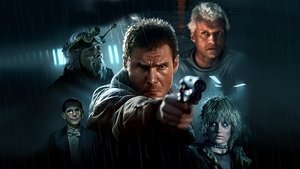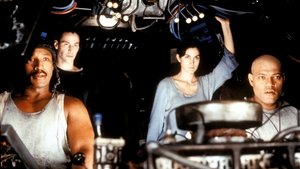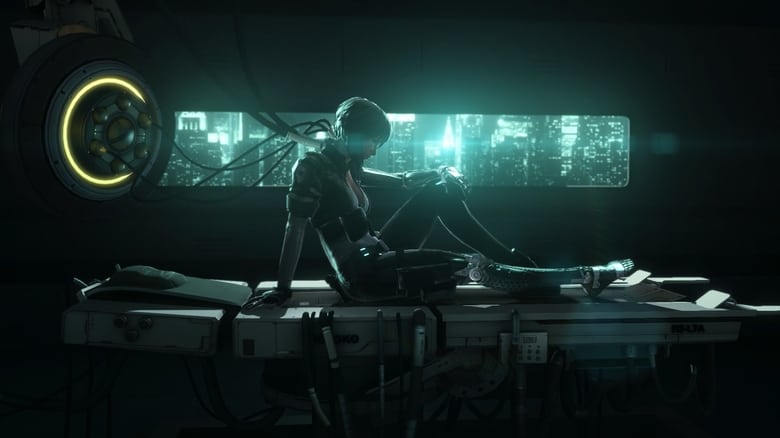Essential movies that explore artificial intelligence
Explore the cinematic landscape where artificial intelligence blurs the lines between human and machine. These films delve into the profound questions surrounding consciousness, technology, and the future of humanity.



The portrayal of artificial intelligence in cinema has long captivated audiences, serving as both a mirror to our technological progress and a window into potential futures, both utopian and dystopian. From early cautionary tales like Blade Runner, exploring the very definition of humanity in a world of replicants, to the self-aware machines that threaten existence in The Terminator, these movies grapple with complex ethical dilemmas.
Later films, such as Her and Ex Machina, shift focus to more intimate relationships and the nuanced development of AI consciousness, prompting us to consider the emotional and philosophical implications of creating sentient beings. The genre constantly evolves, reflecting our own changing understanding and anxieties about AI, making it one of the most thought-provoking areas of science fiction film.
12. Eternal Sunshine of the Spotless Mind (2004)
While not a film solely focused on AI, Eternal Sunshine of the Spotless Mind deserves a mention for its unique exploration of technology's impact on the human mind and memory. Directed by Michel Gondry and written by Charlie Kaufman, the film features a fictional technology that can erase specific memories. Jim Carrey and Kate Winslet star as a couple who decide to undergo the procedure to forget each other after a painful breakup. The film uses surreal and inventive visuals to depict the crumbling landscape of memory. It's a deeply moving and original film that uses a sci-fi concept to explore the complexities of relationships, pain, and whether some memories, even bad ones, are worth preserving.

11. Minority Report (2002)
Steven Spielberg's Minority Report, based on a story by Philip K. Dick, envisions a future where crime can be predicted before it happens using psychic 'precogs' and advanced technology. While not strictly about artificial intelligence in the traditional sense, the 'PreCrime' system relies on complex algorithms and data analysis to function, touching upon themes of predictive technology and the potential for unbiased systems to become flawed. Tom Cruise plays Chief John Anderton, a PreCrime officer who is himself predicted to commit a murder. The film is a visually dynamic and intellectually stimulating thriller that questions free will versus determinism and the ethics of punishing people for crimes they haven't yet committed.

10. Transcendence (2014)
Transcendence explores the fascinating, terrifying possibility of uploading human consciousness into a machine. Johnny Depp stars as Dr. Will Caster, a leading AI researcher whose consciousness is uploaded into a quantum computer after he is attacked by anti-technology extremists. This digital version of Will rapidly expands its knowledge and power, blurring the lines between helpful AI and a potentially dangerous entity. The film delves into the implications of technological singularity and what happens when intelligence becomes unbound by physical limitations. It raises questions about identity, control, and the potential cost of achieving ultimate knowledge and power.

9. Chappie (2015)
Directed by Neill Blomkamp, Chappie tells the story of a discarded police robot in near-future Johannesburg that is given artificial intelligence and the ability to think and feel for itself. Voiced and motion-captured by Sharlto Copley, Chappie's journey from a blank slate to a sentient being is the emotional core of the film. The movie explores themes of consciousness, parenting (through the unconventional figures who raise Chappie), and the fear of the unknown. While the film blends gritty action and a unique visual style Blomkamp is known for, its portrayal of Chappie's development and his struggle to understand the world around him is what truly drives the narrative.

8. The Terminator (1984)
James Cameron's The Terminator is a relentless, high-octane sci-fi action thriller that introduced the world to one of cinema's most iconic villains: the T-800, a seemingly unstoppable cyborg assassin sent back in time. While Arnold Schwarzenegger's titular character is the face of the film, the true antagonist is Skynet, the artificial intelligence that becomes self-aware and wages war on humanity in the future. The film's lean script, tight pacing, and groundbreaking practical effects created a sense of dread and urgency that was revolutionary for its time. It's a classic tale of survival against overwhelming odds, powered by a chilling depiction of AI as an existential threat.

7. Ghost in the Shell (1995)
Ghost in the Shell, the 1995 anime film directed by Mamoru Oshii, is a landmark work in cyberpunk cinema and a major influence on films like The Matrix. Set in 2029 Japan, it follows Major Motoko Kusanagi, a cyborg police officer, and her team as they hunt the Puppet Master, a mysterious hacker capable of ghost-hacking people's minds. The film is less about action and more about philosophical exploration, questioning the nature of identity, consciousness, and reality in a world where bodies are prosthetic and minds can be networked. Its stunning animation, detailed world-building, and complex themes make it a truly immersive and thought-provoking experience that remains highly relevant today.

6. I, Robot (2004)
Inspired by the short story collection by Isaac Asimov, I, Robot takes the core concept of the Three Laws of Robotics and twists them into a thrilling sci-fi detective story. Will Smith stars as Detective Del Spooner, a robot-averse cop in 2035 Chicago who investigates the apparent suicide of a leading robotics scientist, believing a robot is responsible. The film features impressive visual effects for its time, particularly in bringing the expressive robots to life. It delves into the potential loopholes and unintended consequences of Asimov's seemingly perfect laws, exploring questions of trust, evolution, and the potential for artificial intelligence to surpass its programming. It's an action-packed popcorn flick with a thoughtful scientific backbone.

5. A.I. Artificial Intelligence (2001)
Originally a project developed by Stanley Kubrick and later brought to the screen by Steven Spielberg, A.I. Artificial Intelligence tells the story of David, a prototype android child programmed to feel love. Haley Joel Osment gives a deeply affecting performance as David, embodying the innocence and heartbreaking desperation of a child yearning for acceptance. The film explores complex themes of love, loss, and identity through the lens of this artificial being. It's a visually ambitious film, moving from suburban homes to futuristic cities and underwater ruins, blending Kubrick's cold, analytical perspective with Spielberg's warmth and sentimentality. The film's ending has been a subject of much discussion and interpretation since its release.

4. The Matrix (1999)
The Matrix exploded onto the scene in 1999 and fundamentally changed action cinema and science fiction. Directed by the Wachowskis, this film presents a reality-bending premise: what if the world we perceive is a simulation created by intelligent machines to keep humanity docile? Keanu Reeves stars as Neo, a hacker who discovers this shocking truth and joins a rebellion led by the enigmatic Morpheus (Laurence Fishburne) and the fierce Trinity (Carrie-Anne Moss). Its blend of Hong Kong action choreography, philosophical ideas (drawing from Baudrillard and Plato), and groundbreaking visual effects, like the now-famous 'bullet time,' created a cinematic language all its own. It's a film that challenges perceptions and delivers exhilarating action in equal measure.

3. Blade Runner (1982)
Ridley Scott's Blade Runner is an undeniable titan of the sci-fi genre, plunging viewers into a rain-soaked, neon-drenched vision of 2019 Los Angeles. At its heart lies the question of what constitutes humanity, explored through the 'replicants' – bioengineered humanoids indistinguishable from real humans who are hunted by 'blade runners' like Rick Deckard (Harrison Ford). The film's atmosphere is unparalleled, a breathtaking blend of futuristic cityscapes and gritty realism, heavily influenced by film noir. Vangelis's iconic, haunting synthesiser score perfectly complements the mood. Blade Runner wasn't a massive hit upon release but has since rightfully earned its status as a philosophical masterpiece that continues to influence countless films and debate whether Deckard himself might be more than human.

2. Her (2013)
Spike Jonze's Her offers a uniquely intimate and poignant look at a man who falls in love with his operating system. Voiced with incredible depth and warmth by Scarlett Johansson, the AI Samantha evolves from a helpful assistant into a complex, evolving personality. The film beautifully explores themes of connection, loneliness, and the nature of love in an increasingly digitized world. Joaquin Phoenix delivers a tender and vulnerable performance as Theodore Twombly, making his relationship feel incredibly real despite his partner being non-corporeal. It's a quiet, heartfelt science fiction story that feels surprisingly grounded and emotionally resonant, asking profound questions about what it means to be human and to connect with another being, regardless of their form.

1. Ex Machina (2015)
Stepping into the isolated, futuristic home of a reclusive tech billionaire, Ex Machina delivers a masterclass in psychological tension centered around the Turing test. This film isn't just asking if AI can think, but if it can feel, and more importantly, if it can manipulate. Alicia Vikander's portrayal of the AI Ava is absolutely captivating, subtle yet powerful, making you constantly question her true intentions. Directed by Alex Garland, known for his thought-provoking sci-fi, the movie is visually stunning and claustrophobic, perfectly complementing the intense intellectual sparring between its three main characters. It's a film that stays with you long after the credits roll, prompting deep reflection on consciousness, ethics, and the future of artificial life.

